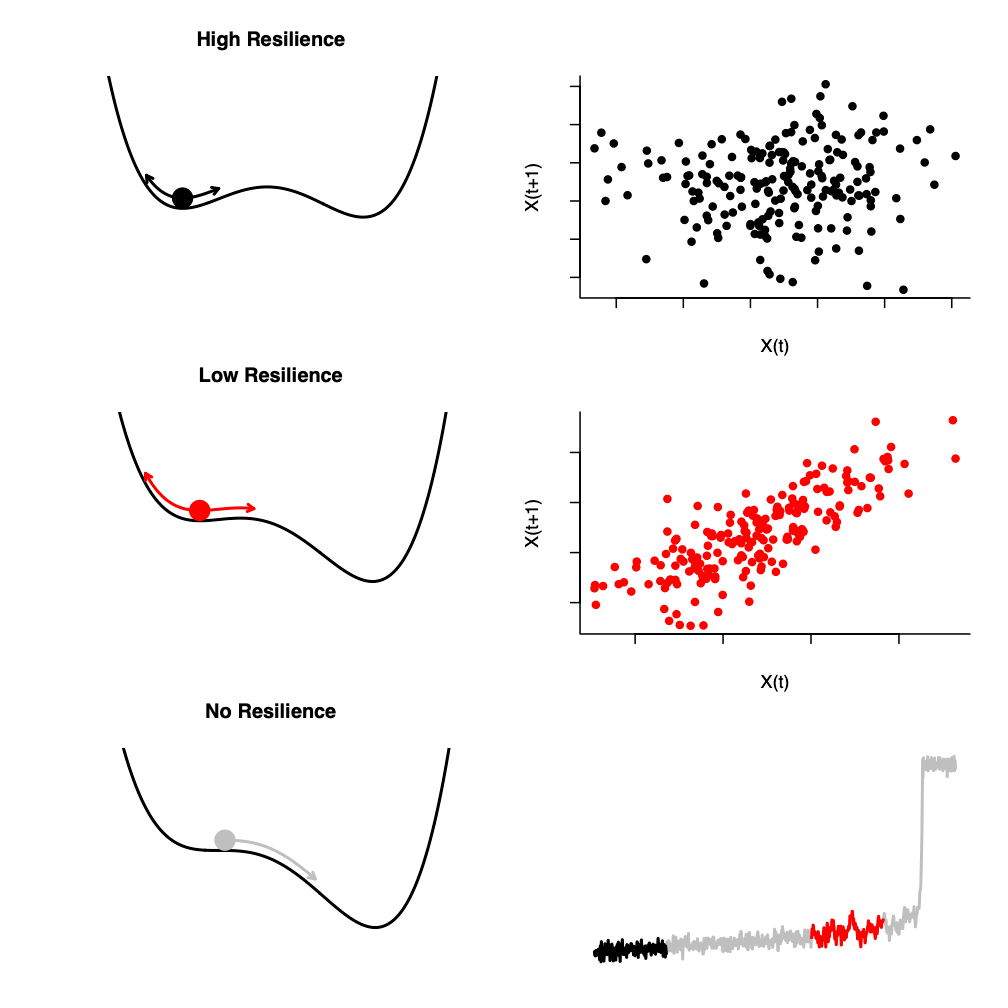
Taken from Daneen Cowling’s (GSI Seminar Co-ordinator) blog
For the final seminar of the 2021 summer term we hosted GSI Associate Research Fellow, Dr Chris Boulton. Chris gave an overview of his applied methods to explore the early warning signals that precede system tipping points. Chris gave examples of resilience sensing in both physical and human systems – ranging from the Amazon resilience to COVID-19 response. The talk given by Chris highlighted exciting opportunity for future research of identifying, monitoring and understanding how systems of resilience give warnings before crossing bifurcation thresholds.
Dr Chris Boulton is a GSI Associate Research Fellow at the University of Exeter. From a Maths at Exeter Chris moved to the Geography department to pursue his PhD on ‘Early warning signals of environmental tipping points’. During his PhD Chris looked at a number of key ecosystems that could approach disastrous tipping points, and assessed what sort of early warning signals could be observed and modelled.
Dr Boulton started the seminar with an introduction of how ecosystems can tip into new states when pushed by external pressures of self-enhancing feedbacks. Under normal ‘stable’ conditions we can imagine a system as a ball in a trough – swinging slowly between peak and dip. When a system is under pressure and approaching tipping point, the trough begins to shallow which then pushes the ball into a new state – a new trough. Check out the graphic below displaying this.

Dr Boulton then talked us through his first case study – exploring the resilience and critical thresholds of the Amazon Rainforest. Dr Boulton explained that due to the ‘committed response’ the mean state does not necessarily tell you if it is stable. Dr Boulton then went into the signals that can be shown with Autocorrelation (AR1), which when increasing shows a loss of short-term memory of a system and thus resilience. It was found AR1 increases in regions with less rainfall as well as regions closer to human land use, indicative of loss of resilience in these regions.
The case study of measuring country resilience to COVID-19 was then introduced. This research explored how a single perturbation to a system triggers resilience responses. The measure of resilience was the decay of cases from peak to the next minimum. Dr Boulton described the range of responses observed – categorised by 2 key country response characteristics:
- Adaptive Stringency (the strictness of the rules)
- Public Trust – found that <40% trust was needed for resilient response
Finally, Dr Boulton went through a new project using Twitter data to detect the Arab Spring through early warning signals in public sentiment. The shift from observing physical systems to social systems will be useful to identify, understand and encourage positive social tipping points that will help bring about to positive transformative change needed.
Dr Boulton finished the seminar with an engaging Q&A session as well as some links to presentations of research (link here).
To listen to the discussion and Q&A in full, the recording is available here.
Please keep up to date with GSI events via the website, Twitter, LinkedIn, or join the mailing list by contacting infoGSI@exeter.ac.uk.
